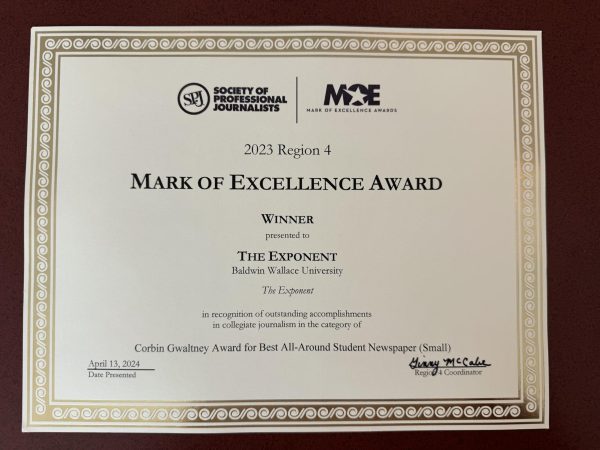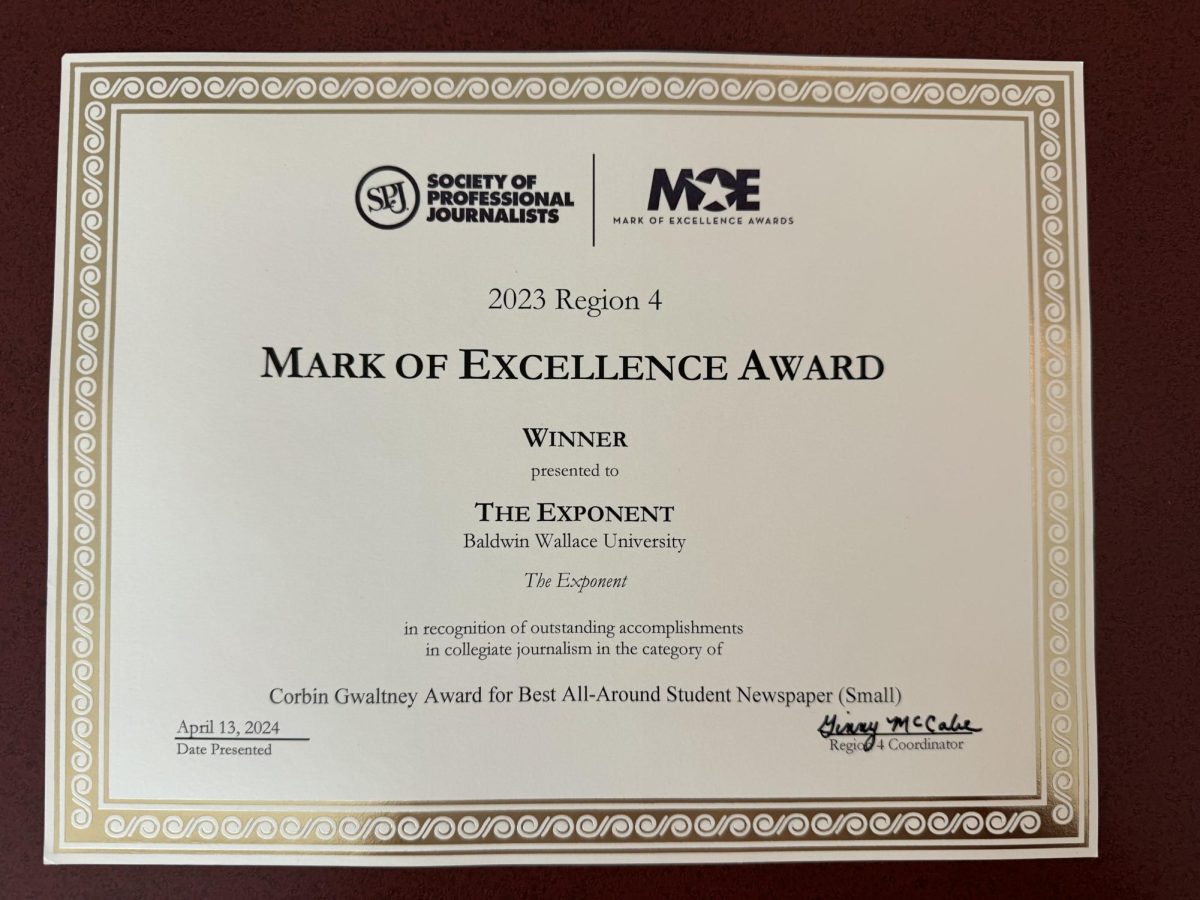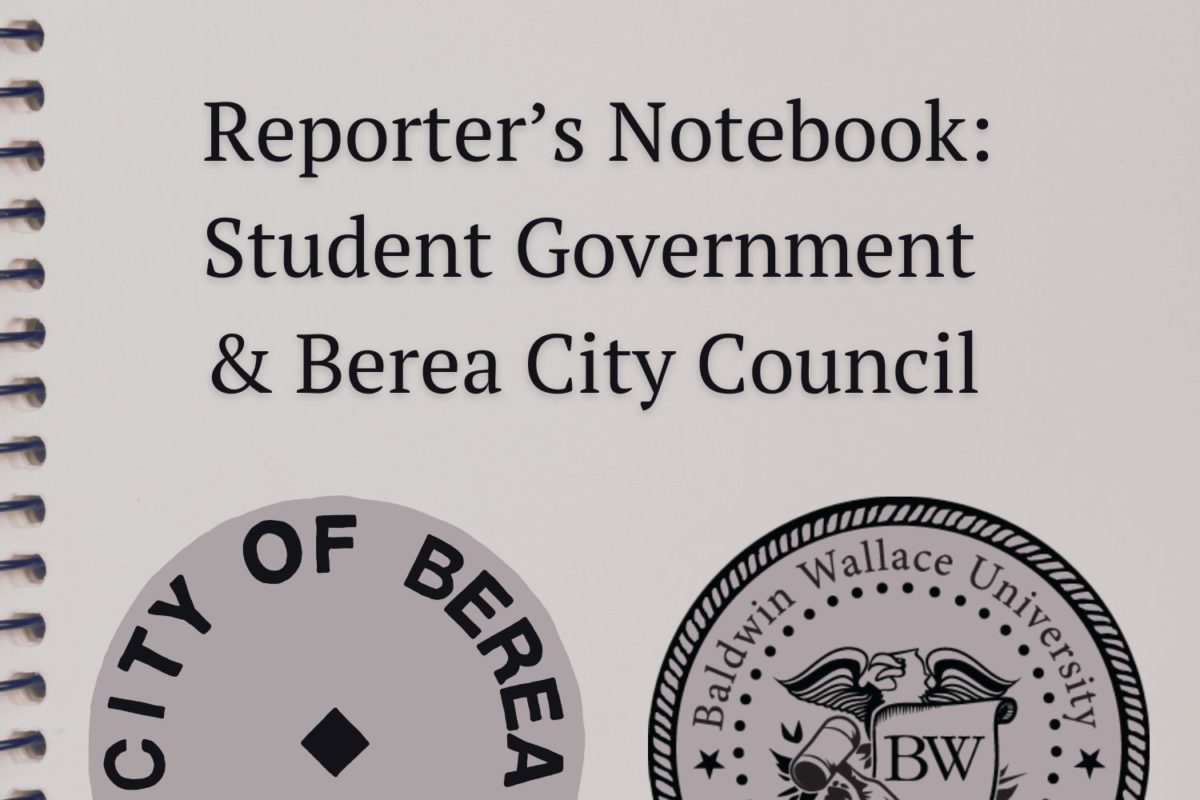Sororities struggling to meet higher recruitment totals
With Baldwin Wallace University setting chapter recruitment totals higher than usual this semester, some sororities on campus are finding it hard to remain in good standing with their international headquarters.
BW is home to five sororities falling under the umbrella of the National Panhellenic Conference (NPC)—an organization comprised of 26 national and international sororities. As NPC sororities, these chapters are required to report their membership numbers to their headquarters annually, and discuss whether their recruitment quota was met.
However, the NPC does not directly set recruitment quotas for its sororities, but rather the universities that house the chapters do. This year, BW’s decision to set recruitment totals higher has led to concerns among those involved with NPC sororities on campus.
Recruitment quotas are set by universities through consultation with a specialist in Released Figure Method (RFM), a mathematical model created by the NPC in 2003. RFM specialists are women who are “specifically trained” in RFM and are responsible for more than just Baldwin Wallace, said Devin Basile, coordinator of the Office of Fraternity and Sorority Life at BW.
“They are the consultant for a number of campuses,” Basile said.
These RFM specialists, said Basile, gather data about potential new members (PNMs) from past and present through an online program dubbed Interactive Collegiate Solutions (ICS). The ICS is populated with data about potential members of sororities, Basile said.
“When a woman registers for recruitment,” Basile said, “they go through this website and they upload data about themselves.”
It is from this information that the RFM specialist sets target sizes for sororities based on interest in Greek life, as well as graduating class sizes, and other factors.
There are three ways BW and the RFM specialist typically set chapter size totals: mean number of all chapter sizes, median, or by largest chapter size on campus.
At the end of last semester, largest chapter size was chosen, setting the total membership goal at 62 for all BW NPC sororities in the current 2018 Spring semester. That number is somewhat misleading, Basile said.
“Three years ago, [there] was a big spike nationally of students enrolled, but the past two years have reverted back to the norm,” Basile said. “With many of our groups, their largest class is their junior class and that kind of played into why we decide to do largest chapter size for sorority total this semester.”
To catch up with this large graduating class, basing sorority totals on largest chapter size seemed logical, Basile said.
For the past few years, either the mean or median of all chapter sizes has been used, said Rebecca Jenei, vice president of judicial affairs and risk management on the Collegiate Panhellenic Council (CPC) and parent/alumnae relations in Phi Mu,.
Jenei said that this decision to change to largest chapter size was made in order to, “allow our community to grow and expand.”
Though done with good intentions, this sudden increase in total chapter size may have consequences for the NPC sororities on campus.
Phi Mu has been put on probation this semester by their headquarters based on their chapter total; the sorority currently has 49 members, which is below the suggested 62.
“It’s been hard for a lot of us to…get people,” said Abby Johnson, vice president of membership for Zeta Tau Alpha, “especially with the lower interest.”
Possibly compounding matters at BW are national trends in Greek life, said Both Jenei and Johnson. Many colleges across the U.S. have begun to crack down on Greek life and, in extreme cases, have even suspended chapters, such as is the case at Ohio State University where all 37 fraternities were suspended just last year.
Hazing practices and alcohol, said Jenei, are just some of the negative stigmas surrounding college Greek life. But BW makes “strident efforts” to dissuade these views. A no-hazing policy and frequent “dry” social events help to influence student and parent views, she said.
Even so, both Jenei and Johnson have noticed downward trends in membership in both of their sororities.
While Basile said that BW currently issues no repercussions for sororities who fall short of their totals, the same cannot be said for the National Panhellenic Conference, the sororities’ umbrella organization.
“I don’t believe it’s BW that anyone’s afraid of. I think it’s BW setting [totals] very high,” said Johnson. “We’re afraid that our international chapter will see us, maybe, as being lazy, or not trying hard enough.”
Johnson said that in a meeting with her province president for Zeta Tau Alpha, the president seemed dissatisfied with her chapter’s recruitment, until Johnson relayed to her the total set by BW. According to Johnson, the province president said the total set by the university was not “normal.”
What is causing this decline in recruitment remains unclear at this time, said Johnson, but the strain on BW’s NPC sororities is apparent.
“The only thing that I [am] really worried about,” said Johnson, “is that because the interest level has gone down, [sororities] would be competing for the same girls. I don’t want that to happen; I don’t want it to become competitive. We have a good community here.”
The Exponent is looking for financial contributions to support our staff and our newsroom in producing high-quality, well-reported and accurate journalism. Thank you for taking the time to consider supporting our student journalists.







































